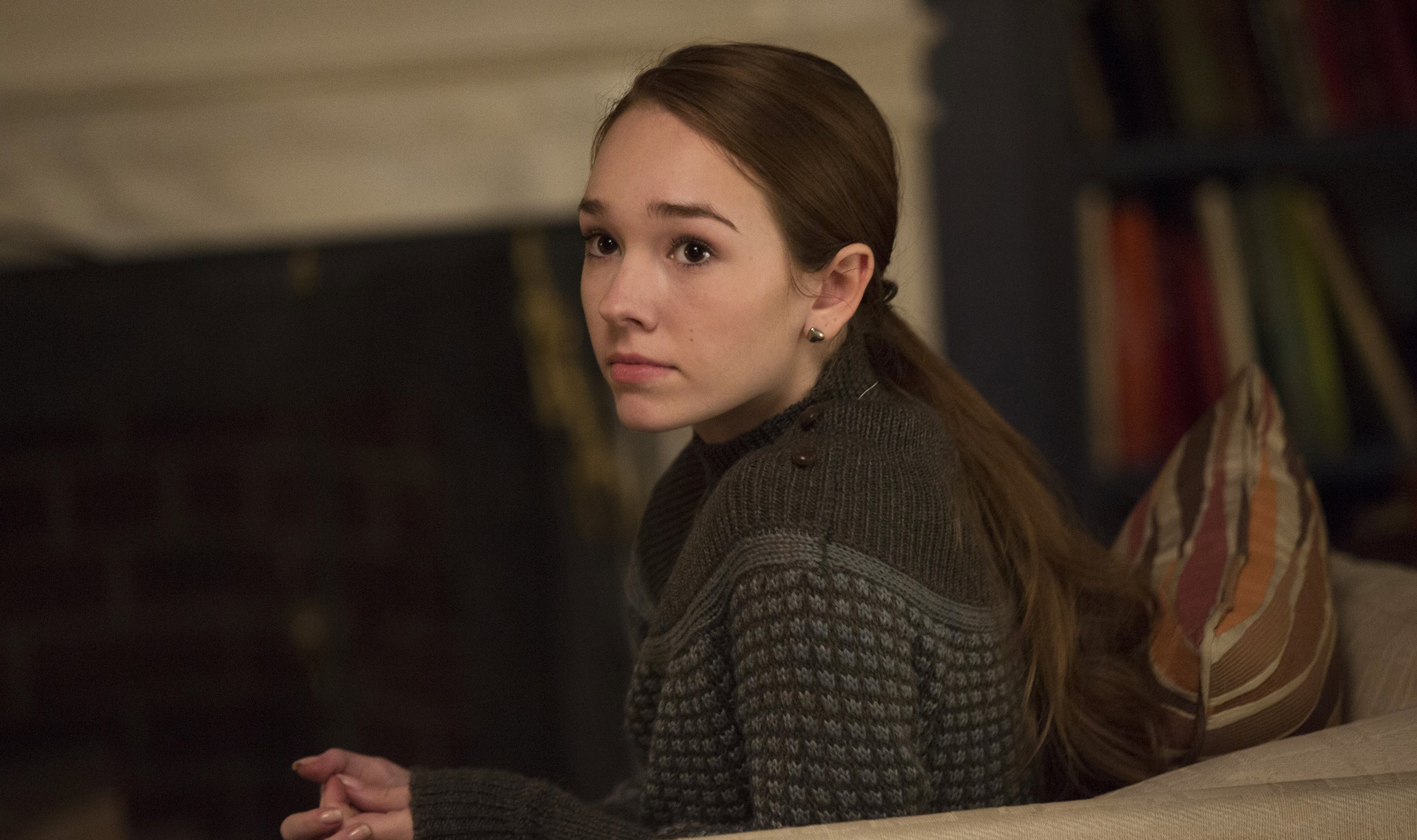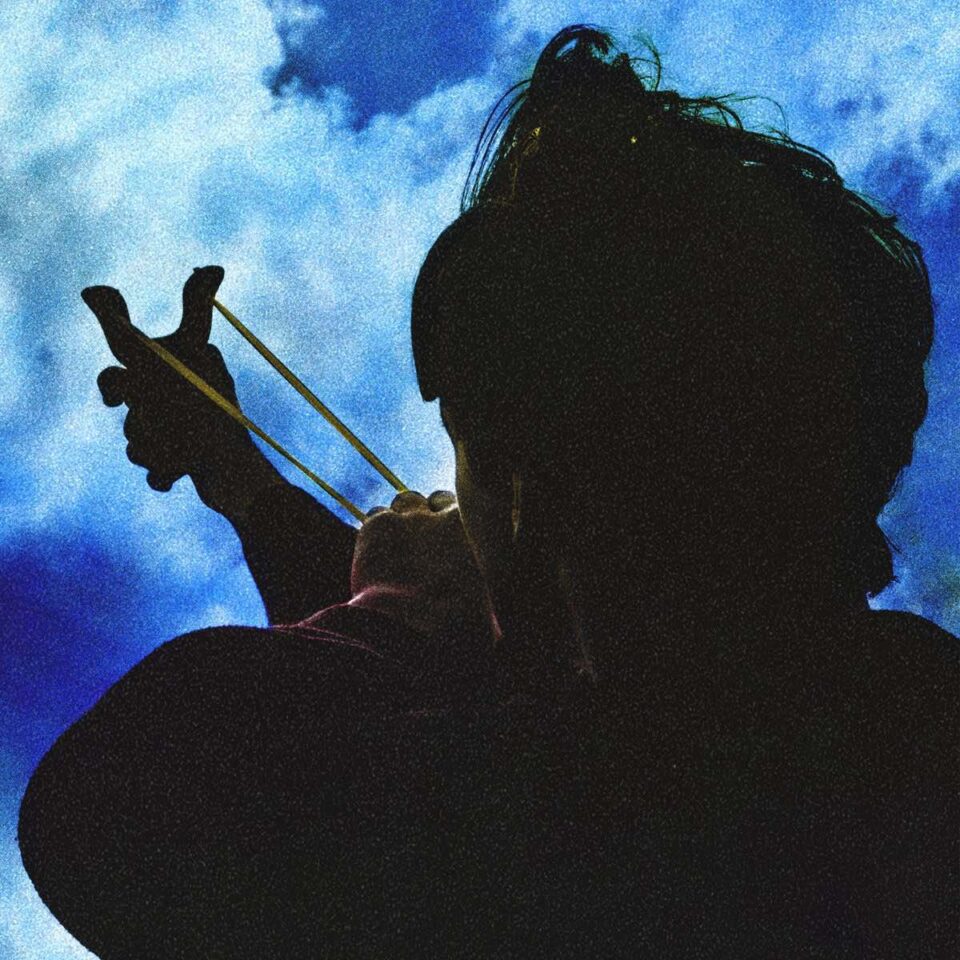Long before Donald Trump and Michael Flynn split a case of Baltika #4s with Vladimir Putin on the nineteenth tee at Mar-a-Lago, FX’s The Americans brought the Cold War back to the forefront of our cultural discourse. The series—featuring Matthew Rhys and Keri Russell as implanted Soviet spies Philip and Elizabeth Jennings in 1980s DC suburbia—revisits an era of geopolitical tension from the perspective of socialist idealism, and creates an empathy and understanding for the “enemy” that is rarely seen in American art. As a story device, the Jennings clan—Philip, Elizabeth, and their children Paige (Holly Taylor) and Henry (Keidrich Sellati)—are not simply an exercise in post-Sopranos anti-heroism, but rather a thoughtful deconstruction of marriage filtered through second-wave feminism and the nuclear family of the ’80s.
Television anti-hero offspring tend to be either forgettable (A. J. Soprano), replaceable (Bobby Draper), or surrogate (Jesse Pinkman). But Taylor’s Paige demands a more prominent place in The Americans’ narrative. She is representative of the cultural and jingoistic propaganda that permeated the Cold War. She has been taught to love her parents and God, and to hate the Soviets and communism. Much like the viewer, Paige is being asked to consider her instilled patriotic bias while managing the inherent conflict of suburban teenagedom. She is discovering herself, her sexuality, her beliefs. She has a boyfriend, the next door neighbor. Sure, his father is an FBI agent (Noah Emmerich), but which rebellious teen hasn’t dated someone whose family seemed repugnant to their own?
As The Americans moves through its penultimate season, Taylor—and Paige—come of age on screen gracefully, in navigating the two most terrifying endurances of the 1980s: the perpetual fear of the Cold War ending in nuclear holocaust, and feathered hair.
Traditionally, TV teenaged roles are played by people in their twenties who have already experienced that transition to adulthood. But for you, Paige’s coming of age has paralleled your own. Has it been difficult to live out those years on camera?
It’s not difficult because I always kind of forget how old I am, in a weird way. Even though I’m a little bit older than Paige, I still felt similar to her. I also wasn’t far enough away that I really had to trace back and think about what it was like when I was a teenager; I’m only nineteen now. A lot of the feelings she has are still really relatable. Even though it’s this huge fiasco and catastrophe that her parents are spies, and it’s not something that people think they can relate to, there are so many relatable aspects to it. She likes a boy but her parents don’t like the boy—so many basic concepts underneath all the hugeness of it.
And how much do we know about our parents’ lives while we’re teenagers?
Yeah, exactly. You learn so much about everyone around you and you learn about yourself throughout those years, and I think Paige has a much more escalated experience of that, but still, [her story relies on] that same concept of adolescence and growing and learning.
Keri Russell was a Mouseketeer and then lived out her early twenties on Felicity. Is she a resource for dealing with the inherent complications of a public life on and off screen?
She’s dealt with her fame and her career in such an admirable way. I don’t see her as this famous person because she’s so private, but at the same time, she seems so open and loving and accepting to everybody that you almost wonder how she can be so private while you feel so close to her. It’s been really nice to work with her and grow up around her, and see how she answers questions in interviews and strays away from [talking about] her personal life.
In many ways, Paige is a stand-in for the audience: She’s an American by birth as well as culturally, and she’s being asked to empathize with the people we’ve been taught are the enemy. Is that a fair representation of your role?
“I’ve had someone come to me in the middle of the street and point at my face, ‘I hate you!’ and then they’re like, ‘Not you—Paige. She’s just the worst.’”
Definitely. That’s why it’s so weird to me when people really hate Paige, or they really want her to die, or to be broken up into a suitcase like [Annelise from the season three episode “Baggage”]. I’m like, “No, I’m in the position you’re in!” I’ve had someone come to me in the middle of the street and point at my face, “I hate you!” and then they’re like, “Not you—Paige. She’s just the worst.”
People are like, “How could you not support your parents? They love you.” Well, how can you support my parents? They’re the ones you’ve been taught to think of as the enemy for all these years! But now you watch one TV show and you love them and hate me because I’m a proud American? It’s a testament to the writers and how they have [engendered] such a great paradigm shift within the audience that now they despise the [actual] Americans in the show.
It’s an interesting time to be on a series that revisits the Cold War, given that US-Russian relations again dominate headlines. Is that something you and the show are aware of creatively or do you try to separate past from present?
I’m not sure how it goes in the writers’ [room], but it’s [not] something that we bring up. The show is so authentic to the 1980s and the Cold War that that’s all you think about. You’re in this era, there’s no space to relate it or tie in the time period that is now. But I’m sure that as a viewer it’s really easy to make those connections.
Those of us who grew up in the ’80s will tell you that the fashion was horrible and the music was worse. In living through the ’80s on the show, are there any artifacts of that era that you’ve come to identify with or appreciate?
I think the thing that I appreciate the most is that they don’t all have cell phones. And Paige doesn’t go home and tweet, “Oh, I wish my life was different.” She just has to deal with things herself. She reads books and talks to her pastor, talks to her parents, instead of looking on the Internet and [googling]: “What do I do now that my parents are spies?” They have to deal with things in such a different way. Even in the spy world, Elizabeth can’t text Philip, “I see someone coming around the corner!” They have to be so much more present and aware of the things around them.
Elizabeth and Paige Jennings are exceptionally strong women. In a patriarchal culture and industry, The Americans shows us the Cold War not just through a Soviet lens but a feminist one as well. It must be special, especially so early in your career, to be able to play a role and be part of a series that defies those patriarchal constructs.
That’s one of my favorite parts about Paige. And that’s why at first when they were bringing Matthew Beeman [Daniel Flaherty] back I was kind of angry. I’m so proud of the fact that I was one of the only teenage girls on TV who didn’t have a boyfriend and her main problem wasn’t the fact that the boy didn’t like her back or something silly like that. She actually had real problems at home and she’s smart and strong; I was über proud of that.
“I’m so proud of the fact that I was one of the only teenage girls on TV whose main problem wasn’t the fact that the boy didn’t like her back or something silly like that.”
With the self-defense that Elizabeth and Paige are [practicing]—you never see a mother teaching a daughter, it’s always the father teaching self-defense and the more aggressive stuff. And [it’s done] in such a cool way. We’re not just like, “This is a feminist show, this man is weaker.” It’s just that we’re able to show that a woman can be really strong and a man can be really sensitive and that’s OK—and they both do their jobs so well. It doesn’t make Philip any less of a soldier.
I can’t see it happening, given the artistic integrity of the series and the traditions of cable, but if The Americans were to have a spin-off featuring Paige in her twenties, what would it be about?
I would like to think it would be Paige working at the CIA. Maybe she got an internship from Stan and joined the Jennings family business, pulling a Martha [Hanson, played by Alison Wright] and gathering information. Hopefully her pants aren’t as tight and her hair hasn’t gotten any bigger, and she’s lost the low ponytail she wears the entire fifth season.
The series is renewed for a sixth and final season. What do you want to do next?
I would love to do some kind of comedic something. The past few years, [I’ve been] doing way too many crying scenes. Comedy is what I trained in and I’ve always wanted to do more—just to try something different and show people that I smile. FL







